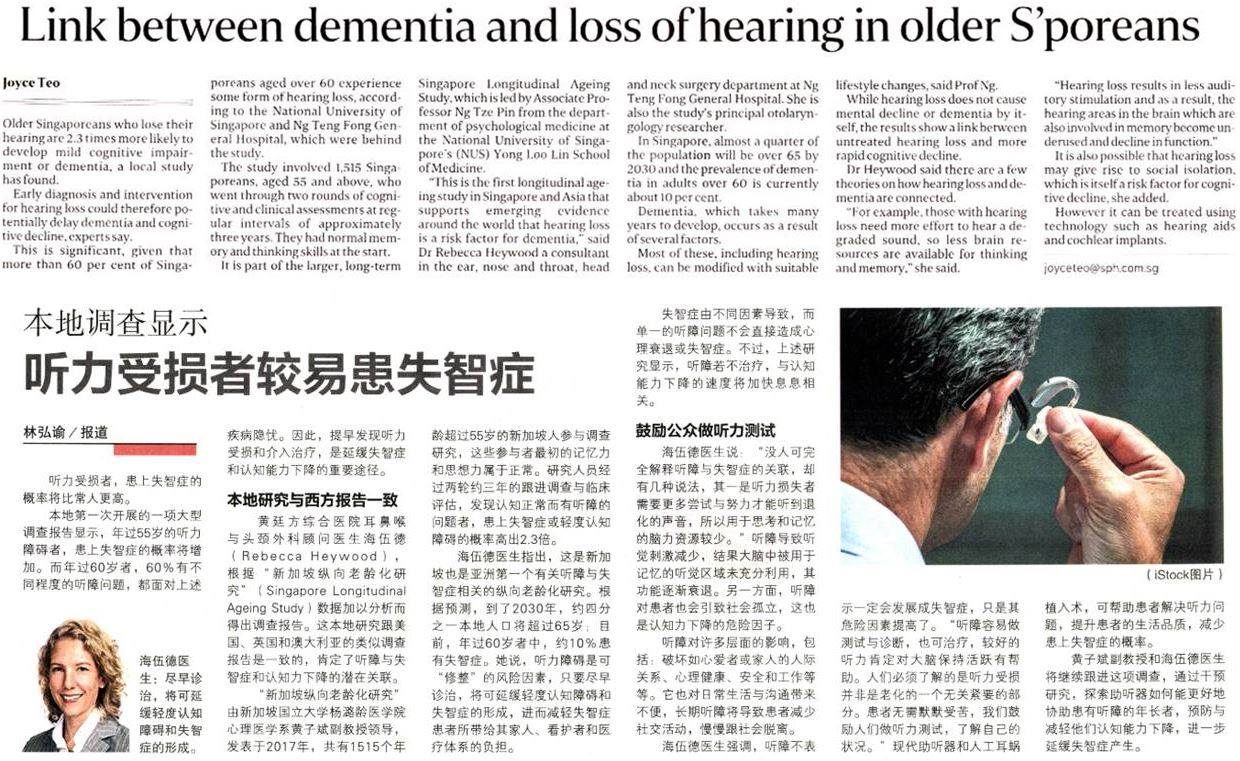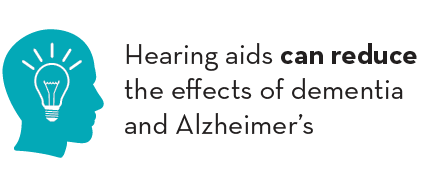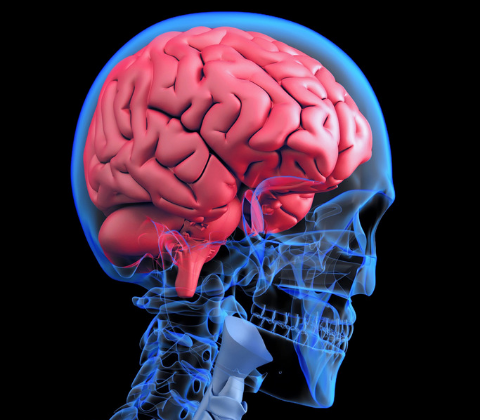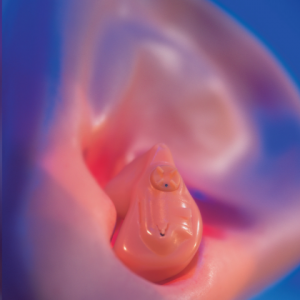Q&A: Do hearing aids prevent dementia in elderly?
Dear Audiologist
My father is 74 year-old who suffers from hearing loss. He turns up the volume for the TV and radio, doesn’t always respond when we call his name, and mishears conversations. My family and I are frustrated with having to repeat ourselves frequently when talking to him.
I recently brought him to a hearing aid shop in Singapore. I was told by the shop owner that hearing loss causes dementia. And my father needs to wear hearing aids now or face the consequences of dementia in future.
Do hearing aids really prevent dementia?
A.
Dear A.
You are not the first person to ask this question. Over the years, I’ve had patients who visited hearing aid shops in their neighborhood after reading about the link between hearing loss and dementia reported in the newspaper.
After being told that they had a hearing loss, they were all given the same message: buy hearing aids now to prevent dementia.


Let me start by saying a lot of well published articles are heavily misinterpreted or misused to sell hearing aids. This is a practice I do not condone.
Dementia in its severe form can be debilitating for both sufferers and caregivers. Scaring an individual with threats of dementia so that he/she wears hearing aids usually does more harm than good.
Furthermore, as an audiologist to patients with both hearing loss and dementia, I can attest to the statement being inaccurate.
What is dementia?

Dementia is not a disease but a group of symptoms. The symptoms differ between individuals and can range from memory loss, difficulty communicating, handling complex tasks, to personality changes. Alzheimer’s disease is the most common cause of dementia in older adults as it accounts for 70% of dementia cases. It causes the brain to progressively deteriorate over time.
Dementia affects 1 in 10 people above the age of 60 in Singapore today.
Hearing loss and dementia, what is the link?
Hearing loss and dementia are both common age-related impairments in older adults. They are also highly noticeable as they cause functional impairments; both hearing loss and dementia individuals struggle in their daily activities.


We know from studies that:
- People with hearing loss have poorer cognitive function
- People with hearing loss are more prone to isolation and depression.
- Hearing loss, social isolation, depression, poorer cognitive function increases the risk of dementia.
However it is also important to note that there are other factors which contribute to dementia. Hearing loss, social isolation and depression is estimated to only contribute to a total of 15% increased risk of dementia.
Risk factors contributing to dementia (Lancet study, 2017)
Education, hypertension, obesity, smoking, exercise & type 2 diabetes
Hearing loss
Depression & social isolation
Uncontrollable factors. I.e., genetics
As there are so many other factors to consider, we can conclude that:
(1) Hearing loss does not necessarily lead to dementia.
(2) Conversely, not having hearing loss does not guarantee you won’t suffer from dementia.
Do hearing aids prevent dementia?

Hearing aids alone do not prevent dementia. This is supported by longitudinal studies which found little to no evidence of the impact of hearing aid use in dementia prevention.
Dementia has multiple causes. Even if the hearing loss is treated, the individual will still need to have the right combination of genes, lifestyle habits, emotional and physical health to reduce the overall risk of dementia.
Should your father wear hearing aids?

If your father has a hearing loss, he should wear hearing aids. Hearing aids reduce the functional impairment of hearing loss and improve communication between the him and loved ones.
Should a person with dementia wear hearing aids?
If an individual has both dementia and hearing loss, hearing aids may help. The individual is recommended to work closely with a medical professional to identify the right treatment.
Hearing aids help the individual with orientation, reduce reliance and communication barriers with caregivers. This can relieve social isolation and some psychological symptoms of dementia. And although hearing aids can’t prevent dementia, hearing aids may help slow down the rate of cognitive decline.

If you suspect your parent is suffering from both hearing loss and cognitive decline, we recommend seeking treatment from a geriatric audiologist. A geriatric audiologist focuses on elderly healthcare and is equipped to administer basic cognitive screening assessment. The audiologist is able to recommend the right rehabilitation methods and hearing aids for the elderly patient (if necessary).


